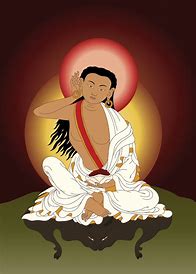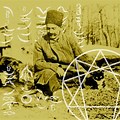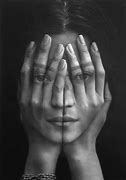Religion in Africa Before Christianity and Islam
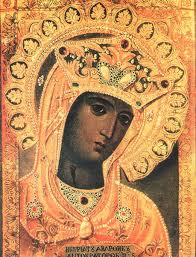








Religion in Africa Before Christianity and Islam
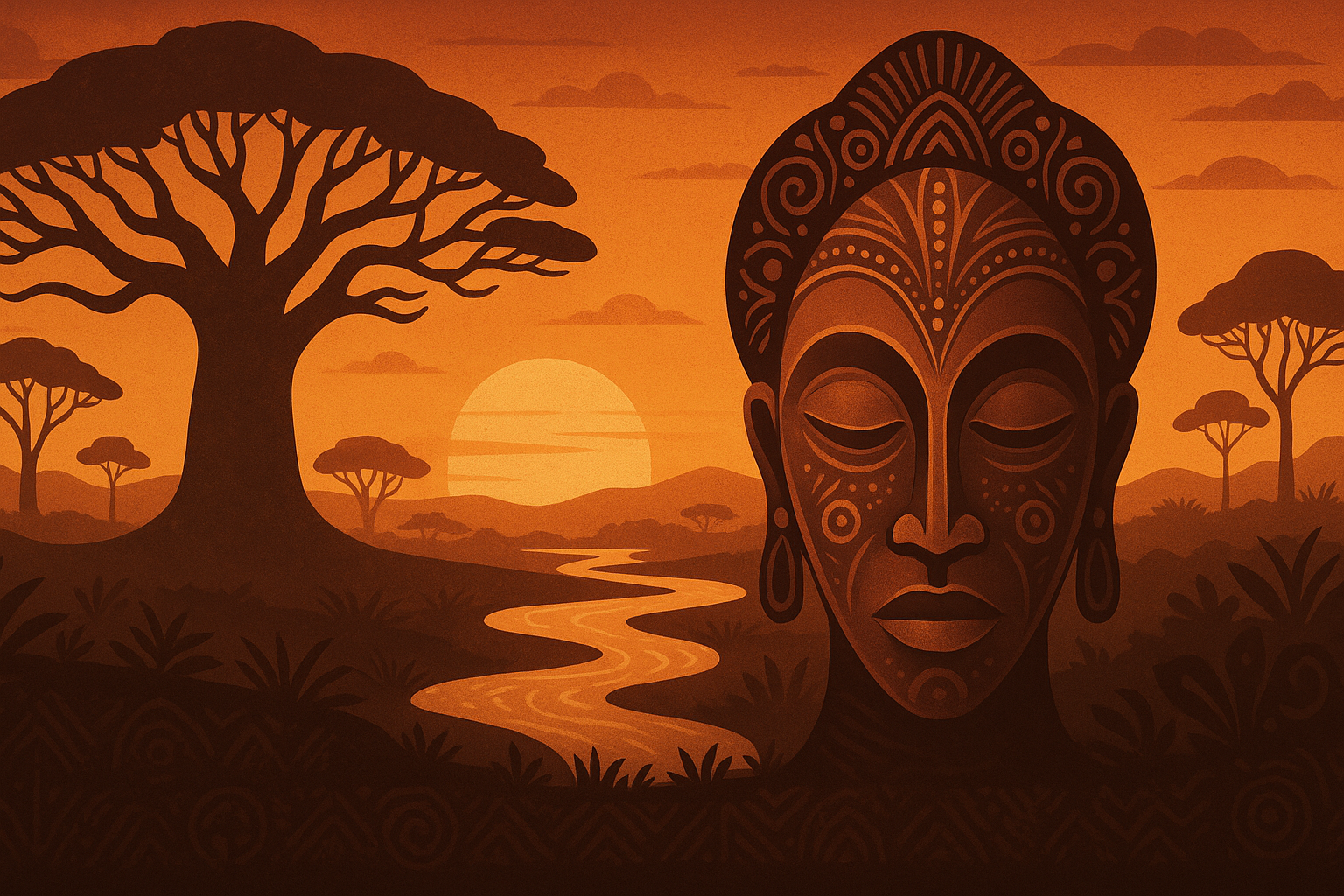
Religion in Africa Before Christianity and Islam,Africans created spiritual systems that permeated every aspect of daily life for thousands of years. Rather than being recorded in books, these belief systems were transmitted through songs, dances, rituals, and stories.They drew from a profound knowledge of the spirit world, community, and nature. Before the arrival of Christianity and Islam, Africans embraced diverse spiritual practices that celebrated life, honor, and the power of the unseen.
In this article, we will explore:
- The Foundations of Traditional African Beliefs: How African spirituality began and the core ideas that shaped these belief systems.
- Core Concepts and Rituals in Traditional African Spirituality: An in-depth look at important elements, including the roles of nature, ancestors, and gods, as well as common rituals and ceremonies.
- The Enduring Legacy and Impact of Traditional African Beliefs: How these beliefs continue to influence African cultures, practices, and identities today.
Understanding these spiritual traditions helps us appreciate the diversity and richness of African heritage while recognizing how these systems once guided communities long before new religions arrived.
Section 1: The Foundations of Traditional African Beliefs: Religion in Africa Before Christianity and Islam
A Deep Connection to Nature and the World
Long before the spread of Christianity and Islam, African societies organized their view of the world around the natural environment. People believed that the Earth, sky, rivers, mountains, and forests were alive with the presence of spirits and deities. This respect for nature was not simply about appreciating the beauty of the world—it was about living in balance with it.
- The Living Earth: Many African communities saw the land as a living being. The earth was revered as a nurturing force that provided food, shelter, and life. This belief fostered sustainable practices, as people understood that treating the land with respect meant it would continue to support future generations.
- Elements of Creation: For many Africans, natural elements like water, air, fire, and earth were not separate from the divine. They were expressions of life itself. The wind might be seen as the breath of a deity, while water could be a symbol of life and fertility.
- Animals as Spiritual Messengers: Animals often played symbolic roles in many African belief systems. Some species were considered sacred, believed to carry messages from the spiritual realm. The lion could represent strength and leadership; the crocodile, mystery and power; and the bird, an airborne messenger connecting the human world with the heavens.
The Role of the Supreme Being and Lesser Spirits
In almost all traditional African belief systems there is the idea of a Supreme Being—a creator who set the world in motion. However, this Supreme Being is usually seen as distant, leading to a rich pantheon of deities and spirits who interact directly with human life.
- The Supreme Creator: Many African cultures believe in one great creator who is often seen as the ultimate source of all life. This creator is usually distant in day-to-day affairs and is considered the architect of the universe. Despite this distance, the creator’s influence is evident in every aspect of nature and life.
- Lesser Gods and Deities: Surrounding the Supreme Being are many lesser gods and goddesses who represent various aspects of nature and human experience. These deities might oversee agriculture, water, fertility, or healing. In the Yoruba tradition of West Africa, for example, the Orishas—powerful deities like Oshun (goddess of fertility and rivers) and Shango (god of thunder)—play vital roles in everyday life.
- Spirits and Ancestors: Another essential part of the belief system is the role of the ancestors and other spirits. Ancestors are revered as guides and protectors. It is believed that the spirits of those who have passed on remain close to the living, offering wisdom and support when honored through ritual and remembrance.
Oral Tradition and the Transmission of Belief
Without written texts, traditional African beliefs were passed down through generations by word of mouth. This oral tradition was rich and varied, ensuring that spiritual knowledge remained vibrant and adaptable to changing times.
- Myths and Legends: Stories about creation, heroic ancestors, and the origin of natural phenomena were told and retold. These myths often carried important lessons about how to live, how to treat the land, and how to interact with the spirit world.
- Songs and Chants: Music and song were powerful tools for preserving tradition. Drumming and chanting connected people during rituals, helping to summon spirits, celebrate harvests, or mourn loss.
- Dances and Rituals: Dance was not merely entertainment—it was a form of prayer and a way to connect with the divine. Rituals involving dance, music, and symbolic movement allowed communities to engage actively with the spiritual world.
- Role of Elders and Spiritual Leaders: Griots, diviners, and spiritual healers held a place of honor as keepers of tradition. They ensured that important knowledge was transmitted accurately and maintained the continuity of the culture.
These methods of transmission meant that African spirituality was deeply rooted in the communal life of the people. Beliefs were dynamic and could adapt to new challenges without losing their core message.
Section 2: Core Concepts and Rituals in Traditional African Spirituality
The Concept of Harmony and Balance
At the heart of many traditional African belief systems is the idea that life is about balance and harmony. Everything in the universe is interlinked, and when one part is disturbed, it affects the whole.
- Cosmic Balance: African spirituality teaches that the universe is a delicate balance of forces. If one aspect of life—like agriculture, family, or weather—falls out of balance, spiritual remedies are needed to restore harmony. This idea is reflected in the careful ceremonies intended to appease angry spirits or rectify wrongdoings.
- Social Harmony: The community and family are seen as extensions of the natural order. Conflicts, therefore, are not just personal matters but are seen as disruptions of the cosmic balance. Traditional dispute resolution often involves spiritual practices aimed at restoring peace.
- Health and Well-Being: Illness, in many traditional African beliefs, is not just a physical condition. It is often viewed as a sign of spiritual imbalance. Healing practices, therefore, include not only herbal remedies and physical treatments but also rituals designed to cleanse the spirit and restore the patient’s connection with the natural world.
Rituals and Ceremonies: Celebrating and Healing
Rituals are a cornerstone of African spirituality. They serve multiple purposes, from celebrating life’s milestones to healing both the body and the community.
- Rites of Passage: Ceremonies marking the passage from childhood to adulthood, marriage, and even death are deeply spiritual events. These rites of passage are opportunities to honor ancestors, seek blessings, and mark the cyclical nature of life.
- Harvest Festivals: Agriculture is central to many African societies. Harvest festivals celebrate the bounty of the land. These gatherings involve prayers, dances, and feasts where people offer thanks to nature spirits and deities, ensuring that the land remains fertile.
- Healing Rituals: Traditional healers perform rituals to diagnose and treat illnesses. These ceremonies may include chanting, dancing, and the use of symbolic objects to invite healing forces into the patient’s life. In many cultures, a healer (often known as a diviner or herbalist) is thought to communicate with the spirit world to identify the cause of sickness.
- Ancestral Worship: The ancestors play a critical role in everyday spiritual life. Rituals to honor them can include offerings of food and drink, special prayers, and remembrance ceremonies held at family shrines. These acts are meant to ensure that the ancestors continue to look after their living descendants.
- Sacred Spaces: Many African communities have sacred places—groves, mountains, and rivers—where the veil between the physical and spiritual worlds is thin. These locations are ideal for pilgrimage, meditation, and conducting important ceremonies. Such spaces are treated with great reverence, and it is common for people to leave offerings for the spirits that dwell there.
Symbols and Art in African Spirituality
African spirituality is rich in symbols that carry deep meanings and connect believers to their traditions and the divine.
- Masks and Sculptures: Masks and statues are not just art; they are vehicles for the spirit. During ceremonies, masks may be worn to represent deities, ancestors, or protective forces. These objects are created with intricate detail and are believed to hold powerful energy.
- Color and Cloth: Colors often have specific meanings in traditional African cultures. For example, white might represent purity and new beginnings, while red could stand for life, strength, or sometimes danger. Clothing and fabrics are used ceremonially to reflect these ideas.
- Oral and Visual Storytelling: Alongside the spoken word, visual art such as rock paintings, beadwork, and pottery tell stories of creation, heroism, and the moral lessons of the culture. These items are both decorative and deeply symbolic, carrying forward the messages of the ancestors.
- Religion in Africa Before Christianity and Islam
Reference: www.afriklens.com
Articles-Latest
- Koran burning conviction sparks fury as blasphemy law 'returns to UK'
- Robert Francis Prevost - Pope Leo XIV
- Pope Francis' death follows recent health challenges. Here's what we know about how he died.
- Easter April 2025 - international Celebrations
- The Rule of the twelve psalms -Worthy is the Lamb
- Religion in Africa Before Christianity and Islam
- 6 The Origin of Yahweh
- Dumo Di Milano
- What Did the Crow Tribe Believe In: Discover The Beliefs!
- 7 Reasons Historic Christianity Rejects the Book of Enoch
- 8 Breathtaking Mountain Monasteries Around the World
- Ethiopian Bible is oldest and most complete on earth
- Muhammad Muhammad was a prophet and founder of Islam.
- World Day of the Poor – SVP Christmas Campaign 2024
- Pope Francis to open 5 sacred portals on Christmas Eve — for a ritual that’s never been done before
- The 144,000 in Revelation
- Over 73 dead bodies 'used for meditation', 600 crocs in a pond, found in two Thai temples
- Occultism: Western Occult Tradition
- What is a Mudra
- Blood Sacrifices: Ancient Rituals of Life and Death
Articles-Most Read
- Home
- Let There Be Light
- Plants that feel and Speak
- The Singing Forest
- The Singing Forest-2
- Introduction
- Meditation
- Using Essential Oils for Spiritual Connection
- Heaven Scent
- Plants that Feel and Speak-2
- Purification
- Making the Spiritual Connection
- Anointing
- Essential Oils: The unseen Energies
- The Sanctity of Plants
- The Aroma Of Worship - Introduction
- The Aroma Of Worship-Foreward
- Methods Of Use
- Spiritual Blending
- Handling and Storage


